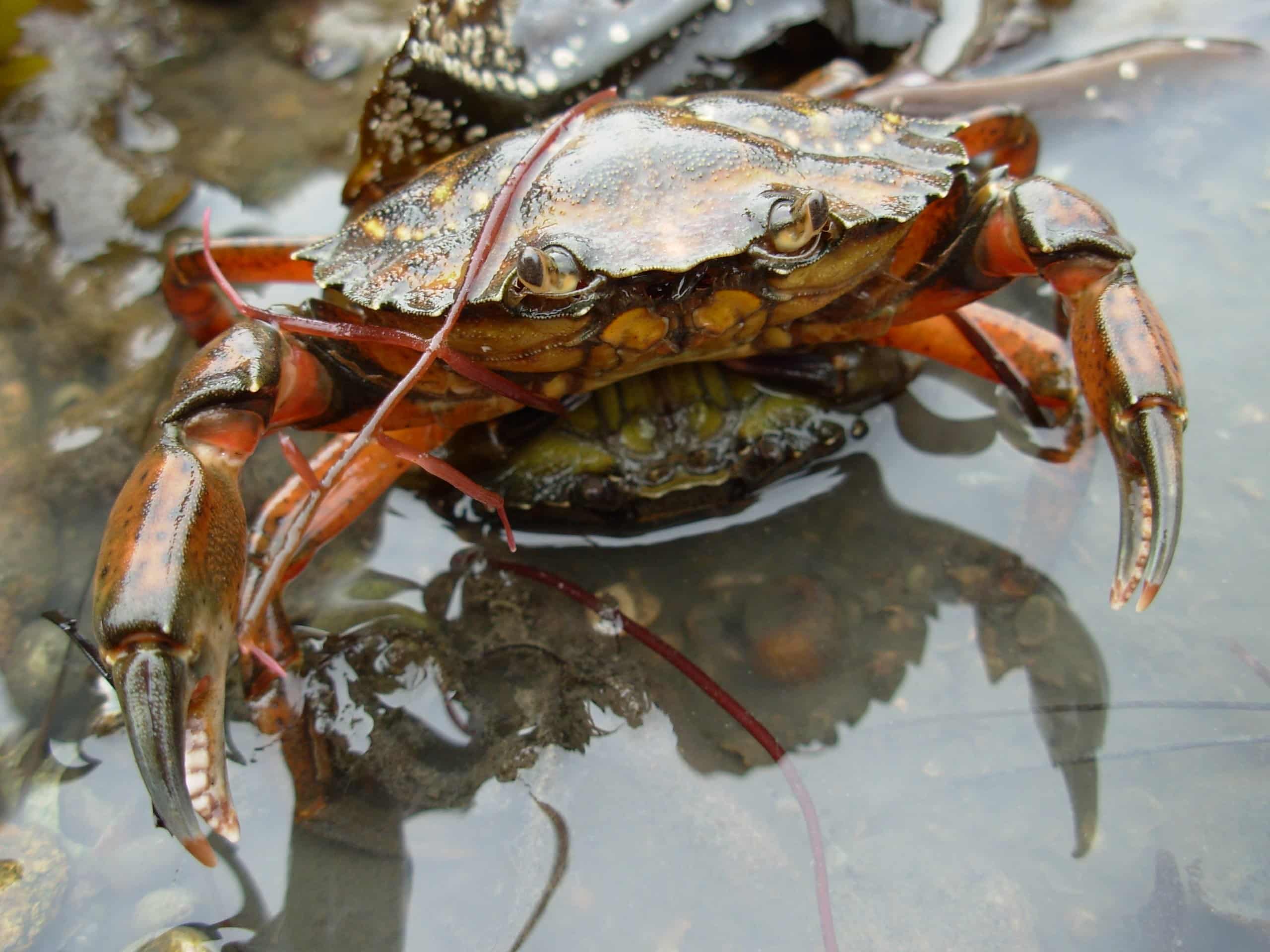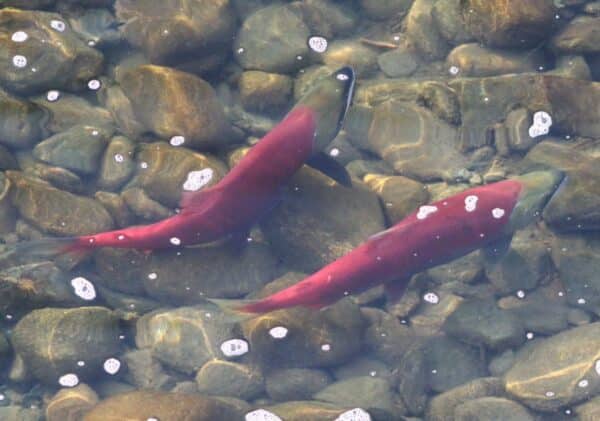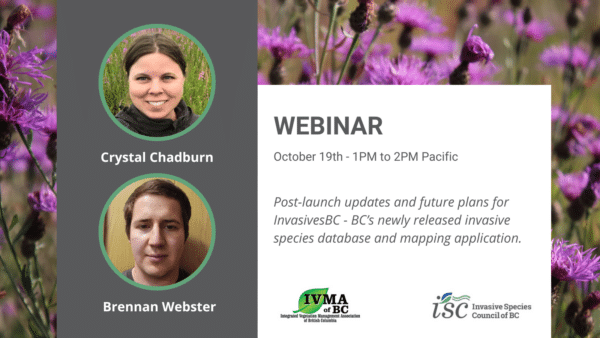By Lisa Houle | October 27, 2022
The Invasive Species Council of BC is pleased to host the online 2022 Youth Mini Summit: “Under the Sea” on November 3rd from 6:00-8:00 pm PT.
Delve into the mysterious world of the sea. There’s a lot going on under the surface. Discover the importance of clam gardens – ancient intertidal features constructed by Indigenous Peoples – and identify invasive European green crabs impacting coastal ecosystems.
Special guests Emily Spencer, Master’s student, and Dr. Nick Wong of ISCBC are presenting at this summit.
Studying at the Coastal Marine Ecology and Conservation Lab at Simon Fraser University, Emily’s research aims to support the revitalization of Indigenous food systems through a collaborative study with nine Coast Salish Nations, Parks Canada, Simon Fraser University, and Vancouver Island University. Her current Master’s work is investigating the impacts of heatwaves on clam gardens.

Clam gardens are an ancient innovation built by Indigenous Peoples across the Pacific Northwest, built to boost the productivity of clams and other harvested species. They are created by building rock walls on the low tide line of a beach. As sediment fills in behind the wall, the beach flattens, resulting in a terrace.
“That’s where the clams live as well as other tasty creatures,” said Emily. “There are so many reasons why clam gardens are important and why Indigenous People across the coast are restoring them. Clam gardens support cultural connection, food security, and sovereignty.”
As an undergraduate student, Emily learned about a clam garden restoration project in the Southern Gulf Islands. This got her hooked on clams.
“I was inspired by how Indigenous Knowledge and Scientific inquiry were informing each other in this project. Not long after, I was pulled into the clammy world through a research opportunity,” said Emily. “I am grateful to be amongst many people who center reciprocal relationships and shared values in their work, and who like to have fun on the beach!”
Dr. Nick Wong manages ISCBC’s Science and Research team and has led many programs, including the Japanese Beetle (Popillia japonica) Eradication Program and European Green Crab (Carcinus maenas) training. Prior to joining the council, Nick worked in the Pacific salmon and herring fisheries and completed a PhD on another invasive crab species, Charybdis japonica, in New Zealand. It’s safe to say Nick knows his fair share about crabs.
“I fell in love with crabs when I was studying in New Zealand and ended up doing a PhD. As soon as I got to BC I was intrigued by the European green crab. I wanted to learn more and do my part to mitigate its impacts,” said Nick.
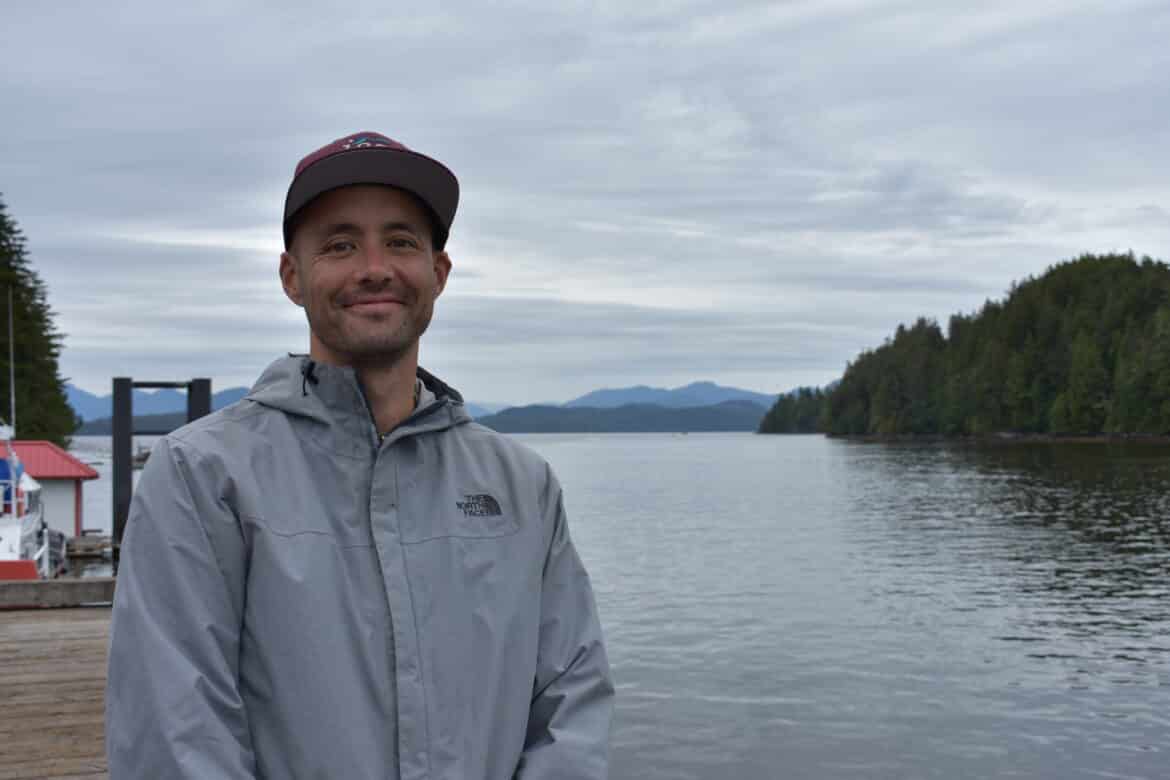
Currently, there are populations of European green crab reported along the Southwest Coast of Vancouver Island, the Central Coast near Bella Bella, and in Boundary Bay just south of Metro Vancouver. It has most recently been detected in the Fraser River estuary.
“European green crabs feed on a wide variety of prey, competing with other species for food and space. They also have a bad habit of destroying eel grass beds. These beds, and the larger meadows they make up, are crucial habitats in BC’s waters. This is where young fish and invertebrates grow up,” said Nick.
When you see a European green crab, you’ll know it.
“If there is one thing you need to remember to identify European green crabs, it is a feature of the shell,” said Nick. “No other species in BC waters will have five spines between the eye and the outer edge of the shell.”
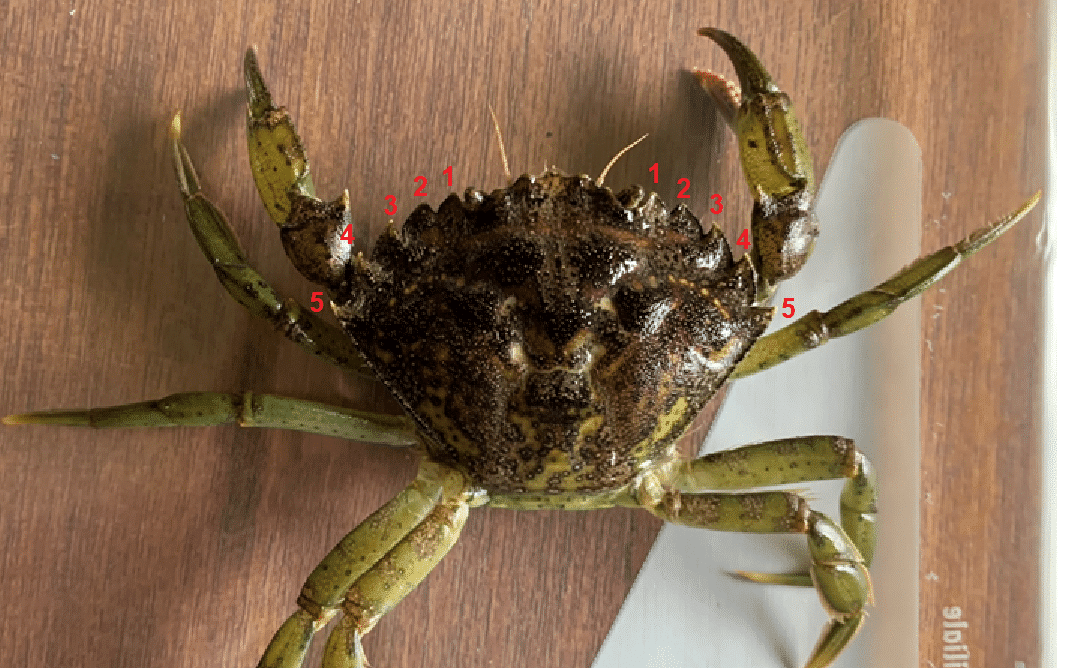
Katelyn Bissat, ISCBC Manager of Volunteer Engagement and organizer of the event, believes education on traditional Indigenous practices, and the impacts of invasive species on local ecosystems, is vital for stewarding the lands of BC.
“Our ecosystems across the province are linked in a dynamic web, supporting life for many species – including ourselves. Protecting our oceans is critical for the health of all British Columbians,” said Katelyn.
Registration for this workshop is now open. Register here to claim your spot before the November 2nd deadline. This workshop is free for everyone!
Healthy Habitat Youth Heroes is funded by Canada Service Corps, a national movement that empowers youth aged 15–30 to gain experience and build important skills while giving back to their community.
Lisa is a Communications and Outreach Coordinator at ISCBC. She values a diverse environment and connecting with others about environmental protection. In her spare time Lisa enjoys spending time at the ocean and beach combing for sea glass. You can reach Lisa at lhoule@bcinvasives.ca
Share


